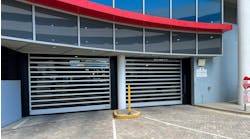There are concerns mounting in environmental circles, as well as those who monitor health issues in relation to solid waste management. Waste management professionals have responded by adding techniques like incineration, composting and using sanitary landfills to reduce its negative impact.
A guide from global procurement intelligence advisory firm SpendEdge announced the release of its Solid Waste Management Procurement Market Research Report to provide a strategic analysis of the supply markets, factors influencing purchasing decisions, procurement best practices, pricing models, supplier landscape and an analysis of the supplier capability matrix for facility managers.
The report breaks down the analysis behind the procurement of solid waste management and acts as an all-inclusive guide for making smart purchasing decisions.
Category Spend Analysis
According to analysts at SpendEdge, increasing stringency in government regulations related to environmental protection is a key growth driver for the solid waste management market. With concern related to environmental protection increasing, governments across regions are developing and reforming policy framework.
The target of governments and institutional bodies while framing laws related to solid waste management is to minimize or eliminate disposal of uncontrolled solid waste materials into the environment and reduce their impact on biodiversity. Laws, such as RCRA and Clean Air Act of the US, are designed to reduce waste generation and ensure that buyers (such as industries, construction companies, and agricultural bodies) focus on recycling.
Strict regulations have been imposed on categorizing solid wastes and mandating the process of managing the solid waste in terms of storage, transport, treatment, and disposal. For instance, in the US the EPA regulates the manufacturing, industrial, and commercial solid and hazardous wastes under the RCRA. Section D of RCRA's solid waste program aims at effectively managing solid wastes.
Procurement Best Practices
One of the procurement best practices is to engage with suppliers that are capable of providing customized solid waste management solutions based on industry-specific requirements. Suppliers should be able to provide different solid waste management solutions, such as mass burn incineration or in-vessel composting, depending on the type of solid waste generated across buyers' production sites
Moreover, suppliers need to have scalability to offer the desired customization based on diversified requirements of buyers
Procurement Challenges
According to this procurement research report, one of the procurement challenges faced by buyers is to estimate the budget of the solid waste management category accurately. Such challenges are seen due to a seasonal increase in utilization of production facilities resulting in increased generation of solid waste. In case, buyers generate an excess amount of solid waste; they have to bear cost overruns, which may reduce their profit margins.
Buyers should engage with suppliers that can provide actionable insights into areas and processes where buyers can reuse and recycle the waste. This helps the buyers to reduce the waste generated and manage to spend within the estimated budget.
SpendEdge’s Global Solid Waste Management Category — Procurement Market Intelligence Report is available to purchase from the firm’s web site.


